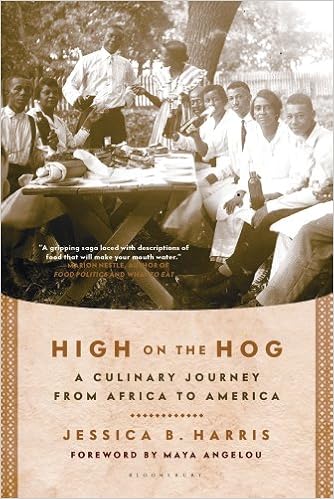Yet on the intellectual level, a long line of trained specialists have reiterated, in whole or in part, the assumptions concerning the Negro past that have been sketched. As a consequence, diverse as are the contributions of these writers in approach, method, and materials, they have, with but few exceptions, contributed to the perpetuation of the legend concerning* the quality of Negro aboriginal endowment and its lack of stamina under contact. We may best begin our documentation of this system with a series of citations concerning the final, culminating element, leaving to later pages excerpts which demonstrate the tenaciousness of the other propositions that lead up to this last point.
...
Scholarly opinion presents a fairly homogeneous conception as to African survivals in the United States. On the whole, specialists tend to accept and stress the view that Africanisms have disappeared as a result of the pressures exerted by the experience of slavery on all aboriginal modes of thought or behavior. As a starting point for subsequent analysis, a few examples of this body of thought may here be given to make available its major assumptions. Representative of this point of view is the following statement of R. E. Park, who in these terms summarizes a position he has held consistently over the years :
My own impression is that the amount of African tradition which
the Negro brought to the United States was very small. In fact, there is
every reason to believe, it seems to me, that the Negro, when he landed
in the United States, left behind him almost everything but his dark
complexion and his tropical temperament. It is very difficult to find in
the South today anything that can be traced directly back to Africa.
E. F. Frazier, in his study of the Negro family, stressed this position in a passage where, speaking of the "scraps of memories, which form only an insignificant part of the growing body of traditions in Negro families" and which "are what remains of the African heritage" he says:
Probably never before in history has a people been so nearly com-
pletely stripped of its social heritage as the Negroes who were brought
to America. Other conquered races have continued to worship their
household gods within the intimate circle of their kinsmen. But Ameri-
can slavery destroyed household gods and dissolved the bonds of sym-
pathy and affection between men of the same blood and household. Old
men and women might have brooded over memories of their African
homeland, but they could not change the world about them. Through
force of circumstances, they had to acquire a new language, adopt new
habits of labor, and take over, however imperfectly, the folkways of the
American environment. Their children, who knew only the American
environment, soon forgot the few memories that had been passed on to
them and developed motivations and modes of behavior in harmony with
the New World. Their children's children have often recalled with skep-
ticism the fragments of stories concerning Africa which have been pre-
served in their families. But, of the habits and customs as well as the
hopes and fears that characterized the life of their f orebearers in Africa,
nothing remains.
Another student of the American Negro, E. B. Reuter, reviewing Frazier's work, gives unconditional assent to the point of view expressed in the preceding passage, when he writes :
The . . . Negro people . . . were brought to America in small con-
signments from many parts of the African continent and over a long
period of time. In the course of capture, importation, and enslavement
they lost every vestige of the African culture. The native languages
disappeared immediately and so completely that scarcely a word of
African origin found its way into English, owing to the dispersion, to
the accidental or intentional separation of tribal stocks, and to the sup-
pression of religious exercises. The supernatural beliefs and practices
completely disappeared; the native forms of family life and the codes
and customs of sex control were destroyed by the circumstances of slave
life; and procreation and the relations of the sexes were reduced to a
simple and primitive level, so with every element of the social heritage.
Melville j. Herskovits
THE MYTH OF THE NEGRO PAST
pg.3-4


 Frazier was one of those people pushing the idea that AA had no culture because of slavery and even went at it with the cac MELVILLE J. HERSKOVITS. who wrote the book "myth of the negro past" detailing/building the case for our cultural continuity...
Frazier was one of those people pushing the idea that AA had no culture because of slavery and even went at it with the cac MELVILLE J. HERSKOVITS. who wrote the book "myth of the negro past" detailing/building the case for our cultural continuity...











 E. Franklin Fraser made assertions based on the facts at hand, filtered through his life's experience, and politics ...period(same as any other social scientist). He didn't "prove" anything(there's my hyperbole again), he merely built a case via his life's work. Which leads us to the final point...
E. Franklin Fraser made assertions based on the facts at hand, filtered through his life's experience, and politics ...period(same as any other social scientist). He didn't "prove" anything(there's my hyperbole again), he merely built a case via his life's work. Which leads us to the final point...









